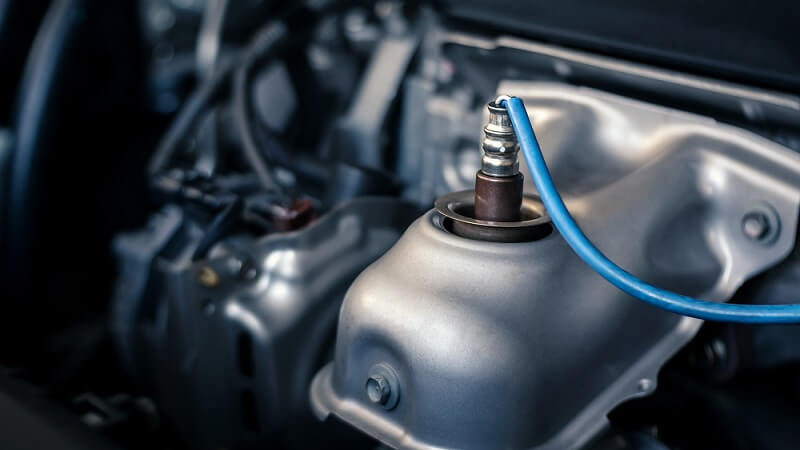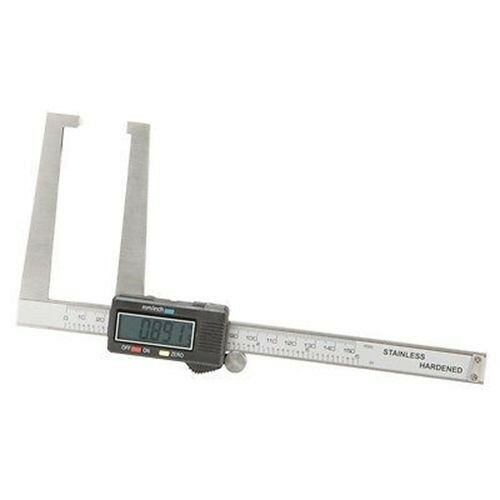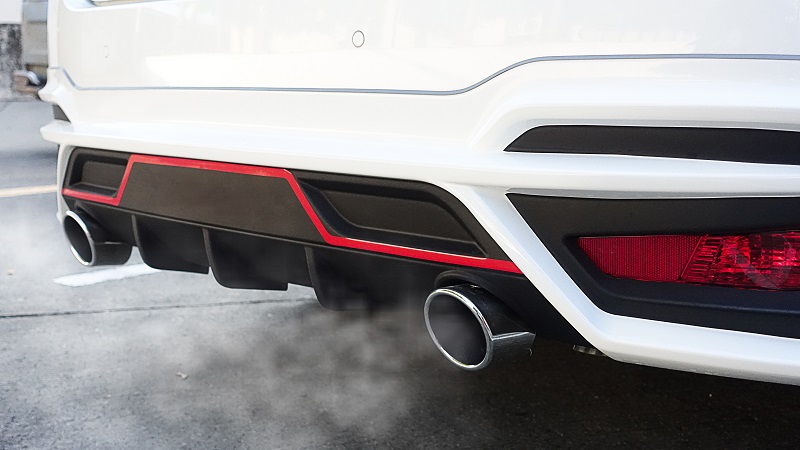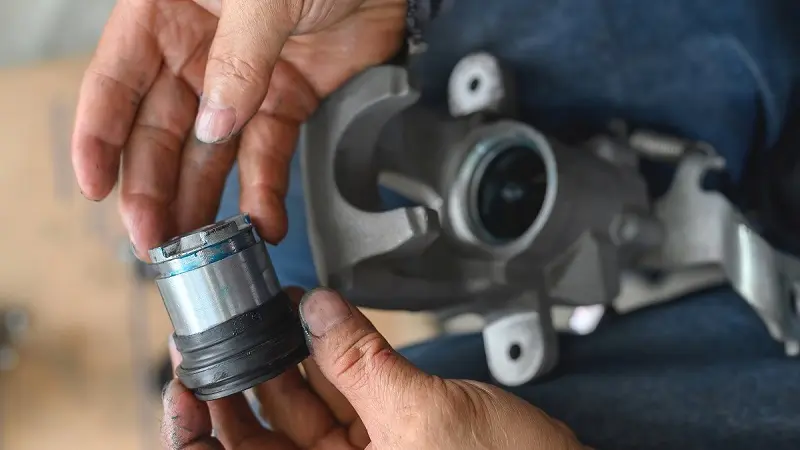Vehicles use combustion engines that rely on the air in order to function properly. This air is combined with gasoline to generate heat energy. This results in the generation of horsepower.
A car air filter is an essential part of the engine that prevents dirt, bugs, and other particulates from entering the engine. The air filter is also responsible for letting enough air to reach the engine so it can perform effectively. Over time, the air filter can become dirty and clogged, and it can have a great effect on your vehicle’s performance.
When To Replace the Engine Air Filter:
Usually, it is recommended to replace the engine air filter every 10,000 to 15,000 miles, or every 12 months. But if you drive in dusty or crowded areas where the traffic is heavy, causing you to stop and start often, then change it more frequently, every 6,000 miles.
Let’s look at some most common symptoms of a bad air filter.
Signs of a Faulty Air Filter
1. Check Engine Light is on

Check engine light can illuminate for many reasons. One of those reasons might be deposits building up in the engine. Many modern engines can take in thousands of gallons of air for a single gallon of fuel that they burn in the combustion cycle. The inadequate air supply can result in carbon deposits — the byproduct of combustion — accumulating in the engine and setting off the Check Engine Light. If that happens, take your vehicle to your trusted mechanic. A mechanic will check the air filter, as well as other components and determine the cause of the problem.
2. Air Filter Appears Dirty

One of the easiest symptoms to recognize is the appearance of the filter itself. A new air cleaner filter looks white, off-white or in some cases different color like yellow and red. Over time, contaminants in the air will make the filter dirty and turn it brown or black.
Always inspect the air filter under the light. If the filter is covered in dust, dirt, and debris, you should replace it.
3. Poor fuel economy

When the air filter is blocked, it can cause reduced oxygen flow. As you know, in a combustion engine, there needs to be enough oxygen in order to produce enough power. If the level of oxygen is low, the engine will consume more fuel to maintain horsepower. A clean air filter keeps the air flowing, and keeps your fuel economy right where it should be.
Most newer cars with fuel-injected engines use onboard computers to calculate the amount of air taken into the engine and adjust the fuel flow accordingly. A dirty air filter shouldn’t affect fuel economy in a significant way.
4. Misfiring Engine
If it becomes hard to start your car, or you have to rev the engine in order for it to start, the reason could be a low air-to-fuel ratio. If Air Fuel Ratio is not perfect 14:1, your engine may not get the proper air. The ratio can differ from model to model. When there is too much fuel in the ratio and not enough air, that can result in engine flooding and the spark plugs becoming polluted. This can result in misfires or trouble starting.
5. Strange Engine Noises
When your car is in park and the engine idling, the engine should produce a smooth humming sound. If you notice your vehicle experiencing a rattly idle, hear hiccups or coughing, or feel unusual vibrations, this is usually caused by dirty or damaged spark plugs. The spark plugs become dirty and damaged due to a clogged air filter. Replacing these two parts can help your engine idle much smoother.
6. Reduced Horsepower
Lack of air can also impair your vehicle’s performance, making accelerating sluggish. If you notice that your car responds slower than usual or it jerks while accelerating, this could indicate that your engine is not receiving all the air it needs to perform. Replacing your air filter can improve acceleration or horsepower by up to 11%
7. Black smoke

When air can’t reach the engine, fuel may not be burning off at an adequate rate. As a result, you may notice fuel leaking through the system to the exhaust pipe. Besides, you may hear popping sounds or black smoke coming from your exhaust pipe. As soon as you notice this, have your mechanic replace or clean the air filter as it can be dangerous to both your vehicle and the environment.
8. Strong fuel smell
If not enough oxygen entering the carburetor or fuel injection system when you start the car, the excess unburnt fuel exits the vehicle through the exhaust pipe. You will smell gasoline instead of seeing smoke or flames coming out of the exhaust pipe. This is a clear sign that you should replace the air filter.
When you notice dirty air filter symptoms, contact your mechanic as quickly as possible. Engine air filters prevent debris from entering the engine. They also maintain the right air-to-fuel ratio, preventing the excess consumption of gasoline. If you clean it from time to time and properly or replace it on time, it can have a great effect on your car’s longevity and engine performance.





